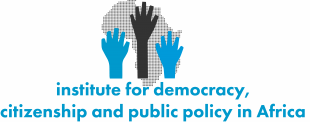16 May 2023
12:45 - 14:00 SAST
CSSR Seminar Room
The Institute for Democracy, Citizenship and Public Policy in Africa (IDCPPA) and the Centre for Social Sciences Research at the University of Cape Town invites you to join us for a seminar on 16 May 2023 presented by Robert Nyenhuis (California State University - Pomona) and Collette Schulz-Herzenberg (Stellenbosch University). The two academics, both of whom are Associate Professors in their respective Political Science departments, will be co-presenting their most recent work on; "Populist Visual Communication in South Africa: Who we are or who we can be? Reflective or Strategic?"
Robert Nyenhuis is an associate professor in the Political Science department at California State University, Pomona. He holds a PhD in Political Science from the University of California, Irvine. His research focuses on populism, voting behaviour, and public opinion in the developing world. He has published in the African Studies Review, the Journal of Modern African Studies, Commonwealth & Comparative Studies, among others.
Collette Schulz-Herzenberg is an associate professor in the Political Science department at Stellenbosch University. Schulz- Herzenberg specializes in political behaviour and public opinion research and has contributed to the surging body of scholarship on South African electoral politics. She is also South Africa's country co- investigator on several international research projects, including the Comparative National Elections Project (CNEP) and the Comparative Study of Electoral Systems (CSES), and is co-editor on several book volumes on South African elections.
"Populist Visual Communication in South Africa: Who we are or who we can be? Reflective or Strategic?"
How does a populist party (the Economic Freedom Fighters, EFF) visually construct ‘the people’? In this article, we make use of an original data set of 1 083 images from Instagram during the 2021 municipal elections campaign. We find that all parties (including the ruling African National Congress, ANC, and the opposition Democratic Alliance, DA) make use of some strategic appeals to try and reach new segments of the electorate. However, the EFF does it to the greatest degree, questioning the prevailing logic of populist representation. Instead of largely using social media to reflect its current supporters and past voters, it strategically uses this platform to construct ‘the people’ to directly appeal to both female and elderly voters, two demographic groups with whom it has long struggled to make electoral inroads.
Details:
16 May 2023
12:45 - 14:00 SAST
CSSR Seminar Room


